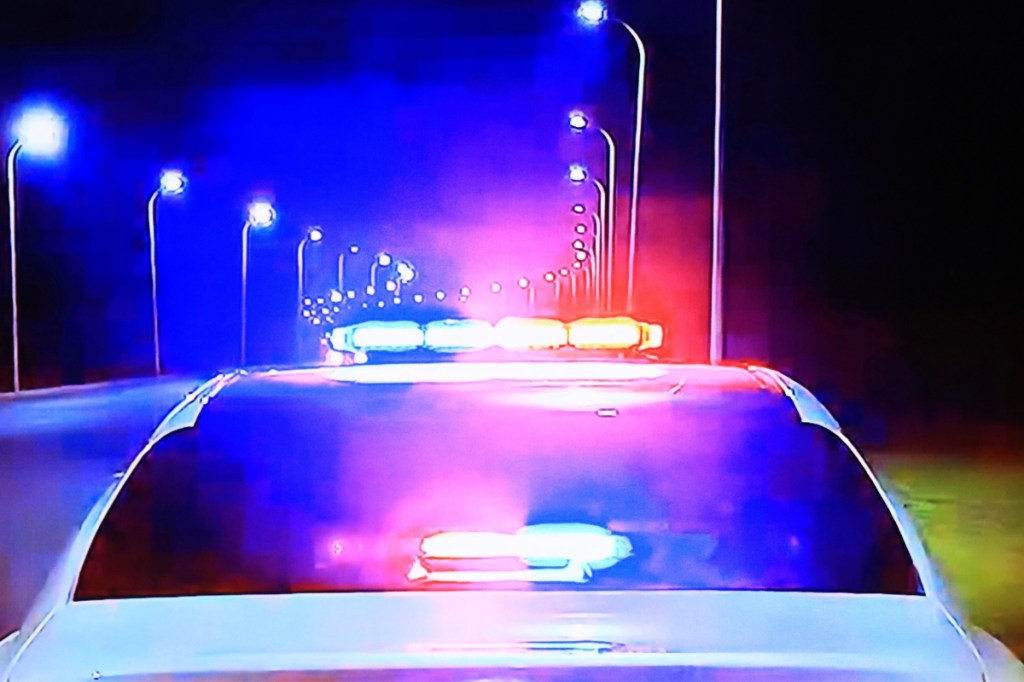The main fear associated with the government use of drones in the United States has been one of privacy invasion when police use them. But at least one guy in California has turned that idea on its head and has begun using drones to film police conduct, instead.
Cameras and cops don’t get along all that often, despite the fact that photography in public places is a right protected by the First Amendment. Filming police from the ground can be a dangerous business. With unsettling frequency, videos that show police intimidating camera-toting citizens are being posted online.
Videos by VICE
That collective effort by police to stop people from photographing them has been called “the war on cameras” by some. The list of people arrested, like Matthew Graber, a Maryland resident who filmed a police officer after being pulled over for speeding, is growing, though every challenged case gets thrown out in court on First Amendment grounds. In fact, there’s an entire website, Photography Is Not a Crime, dedicated to police abuse of photographers and videographers.
To avoid a similar fate, or maybe to just compliment his usual police-filming efforts, Daniel Saulmon, a 42 year-old drone enthusiast, uses a DJI Phantom 2 quadcopter fitted with a camera to film police in the California cities of Hawthorne and Torrance. He uploads all his surveillance videos to his website, Mistaken Bacon, under the pseudonym Tom Zebra.
In 2012, Saulmon was charged for refusing to show ID to the police, despite there not being any law that would require him to do so. He caught the incident on film, and the charges were dropped. Since then, Saulmon has been hellbent on documenting police activity. Now that he’s added a drone to his arsenal, he’s used it to record police outside an Air Force base and at a late-night pier party. He has also flown his drone over a DUI checkpoint.
At this point, it’s not clear whether Saulmon in particular is doing a public service or merely trolling the police—in several of his videos, he seems to be actively picking fights with officers. Either way, there’s certainly a public use for drones, and what he’s doing is a good idea on paper. He hasn’t captured any police abuses yet, but it could just be a matter of time until he—or someone else—does.
As the LAPD and NYPD ready their drones for surveillance activities, Saulmon’s appropriation of the technology should be seen as a small win for citizens. Drones can provide the safety of distance for people who might otherwise fear intimidation or arrest by unscrupulous cops, provided the police don’t knock them out of the sky, which would be a crime.
Police have already begun to push back against drones being used to watch their activities, however.
In February, Pedro Rivera, a journalist and drone hobbyist, almost lost his job at a local news station after police notified his employers that he had used a drone to videotape a car accident scene in Connecticut. Rivera broke no laws, and he wasn’t charged, but police forced him to stop flying the drone at the time.
“The problem, I think, is simple. The police don’t want to be watched, period,” Rivera told Motherboard. “It’s absolutely ridiculous. I wasn’t charged, I didn’t violate anything. They went after my job.”
Police trying to skirt the public eye aren’t the only obstacles drone hobbyists face. The Federal Aviation Association (FAA) has been struggling to keep up with drones’ proliferation among the public, resulting in fake cease and desist letters being sent to businesses using drones and, more recently, attempts at introducing stricter regulations that target hobbyists.
Saulmon remains undeterred.
“My attorney told me there isn’t really much regulation on them,” he told the Los Angeles Times. “I don’t think it’s a substitute for a hand-held camera, but it’s definitely a compliment.”
As drones’ popularity among hobbyists continues to increase, we could very well see more tech-savvy watchdogs using the technology to up the ante in the war on cameras. Police could continue to try to crack down on their use, resulting in more cases like Rivera’s, which will have to be fought in court. The FAA could try to impose regulations on drone flights. For now, however, drones look to be a promising tool to keep police honest.
More
From VICE
-

artas/Getty Images -

Douglas Sacha/Getty Images -

Buddyhead head honcho Travis Keller with his friend Joe Cardamone, formerly of The Icarus Line (All photos by Stephanie Smith) -

All Photos: Jamie Lee Taete
